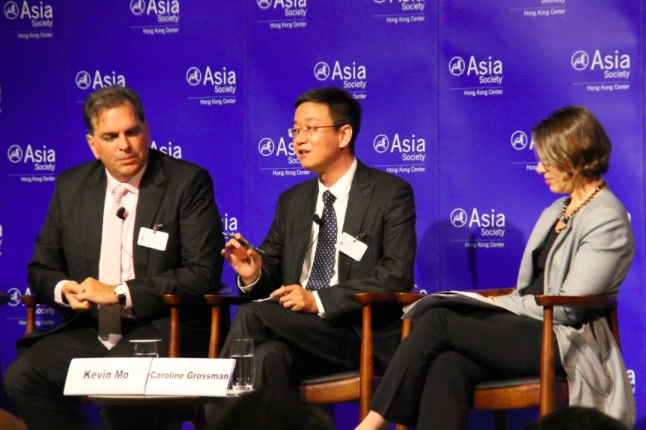
China has made ambitious commitments to reduce carbon emissions, in the Paris Climate Agreement and in the 13th Five-Year Plan. But how will China, with its growing middle class and estimated 100 million people moving to cities over the next five years, balance economic development with the need to address climate change, air pollution and other issues?
Paulson Institute Managing Director Kevin Mo recently discussed the most pressing environmental problems facing China and the challenges of balancing growth with environmental protection with Radio Television Hong Kong (RTHK). Highlights from the interview:
On China’s biggest environmental challenges
China’s current economic growth model has reached a point that is not sustainable at all because in the previous 30 years of development, it’s been above average double digit GDP growth—but at the expense of environmental damage.
Water pollution, air pollution, soil pollution all have reached a point where you cannot continue the current economic development model, so you need to explore and find a new model. The government has already realized that.
Currently the public perception of pollution is mostly just focused on air quality, because it is easier to perceive, but actually water pollution and soil pollution are even worse and cost more to remedy. But since there is not much more public information available yet, it is hard to assess right now. So I would say, the environmental cost is pretty high right now. The good thing is the government already realizes that. That is why recently the Ministry of Environmental Protection set up three new departments to deal with the three particular pollutions – so they have a new department for air pollution, a new department to deal with water pollution, and the third one to deal with soil pollution. This is very good, and it just happened.
On balancing the energy use of a growing middle class with environmental protection
This is very challenging because right now China still wants to maintain GDP growth. Even though growth is much lower than before – it is around 6.5% –compared with other countries’ GDP rates, it is still pretty high. But meanwhile, you have to address the issue we just mentioned– the environmental issues, the air quality. Also, China has made a commitment to the world about climate change, to deal with climate change. So China wants to peak its carbon emissions by 2030 or earlier, and recently they made another commitment that they want to cap total energy use by 2030. So with all these things together, China is actually right now starting to take an integrated approach, which not only addresses GDP growth but also pays attention to air quality and climate change. I think this is a good sign.
Another challenge, I would say, is finance, because you know, China recently announced it probably needs $600 billion per year over the next five years for green development, but the government can only provide 10% – 15% of that, so where will the rest of the money come from? That is a challenge as well.
On China’s ability to be a leader in renewable energy
Beijing and the city of Zhangjiakou just won the bid for the 2022 Winter Olympics, and China wants to use that hosting opportunity to really show its renewable achievements. The city of Zhangjiakou actually has an abundance of wind power, and China just announced the city of Zhangjiakou as a renewable demonstration zone. They definitely want to demonstrate the achievement in renewables by 2022 when the Winter Olympics start.
Listen to the full interview here: China in Urgent Need of a Sustainable Economic Model
Dr. Kevin Mo is the Managing Director of the Paulson Institute Representative Office in Beijing, in charge of climate and sustainable urbanization.


